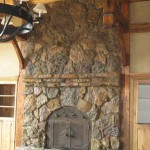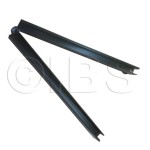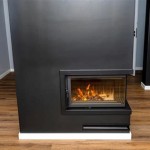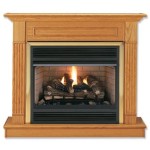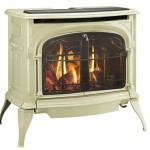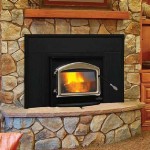Understanding Fireplace Ethanol Fuel
Fireplace ethanol fuel, also known as bio-ethanol fuel, is a renewable, liquid fuel produced from biomass crops such as corn, sugarcane, and grains. It's primarily used in ventless or freestanding fireplaces designed to burn ethanol, offering a convenient and aesthetically pleasing alternative to traditional wood-burning fireplaces. The increasing popularity of ethanol fireplaces stems from their ease of installation, lack of need for chimney systems, and relatively clean burning characteristics. Understanding the composition, benefits, and safety considerations of fireplace ethanol fuel is crucial for consumers considering or using this fuel source.
The core component of fireplace ethanol fuel is denatured ethanol. Denaturation involves adding a substance, often a bitterant or denaturant alcohol, to render the ethanol unfit for human consumption while maintaining its flammability for use as fuel. This process is legally mandated to prevent the misuse of fuel-grade ethanol as a beverage. The specific denaturant and its concentration vary depending on regional regulations and manufacturer preferences. It's imperative that the ethanol fuel used in fireplaces is explicitly labeled as "fireplace fuel" and meets relevant safety standards. Using other types of ethanol, such as industrial ethanol without proper denaturation, can pose significant safety hazards.
Key Point 1: The Composition and Production of Ethanol Fuel
The production of ethanol fuel begins with fermenting biomass feedstock, primarily sugars or starches. Corn, for example, undergoes a process where enzymes break down the starch into sugars. These sugars are then fermented by yeast to produce ethanol and carbon dioxide. Following fermentation, the ethanol solution is distilled to increase its concentration. This distillation process removes water and other impurities. After distillation, the ethanol is denatured to render it unfit for human consumption. The denatured ethanol is then tested and packaged for use as fireplace fuel.
The source of the biomass used to produce ethanol fuel has environmental implications. Fuels derived from sustainably grown biomass, utilizing environmentally responsible farming practices, contribute to a lower carbon footprint. Choosing fuels labeled as "sustainable" or "renewable" can help minimize the environmental impact associated with ethanol production.
The purity of the ethanol fuel is also a significant factor affecting its performance and the cleanliness of its burn. High-purity ethanol fuel tends to burn cleaner, producing less odor and fewer byproducts. Lower-quality fuels may contain impurities that can lead to soot formation, unpleasant smells, and potential damage to the fireplace.
Key Point 2: Benefits and Advantages of Using Ethanol Fuel Fireplaces
One of the primary advantages of using ethanol fuel fireplaces is the absence of the need for a chimney or flue. This significantly reduces installation costs and complexities, making ethanol fireplaces suitable for apartments, condos, and homes where traditional fireplaces are impractical or impossible to install. Since there is no chimney, all of the heat produced by the fire remains in the room, increasing the heating efficiency compared to wood-burning fireplaces which lose a significant amount of heat through the chimney.
Ethanol fireplaces are also generally considered to be cleaner burning than wood-burning fireplaces. When burned correctly, ethanol fuel produces primarily carbon dioxide and water vapor. The amount of carbon dioxide released is generally considered to be equivalent to the amount absorbed by the plants during their growth, making ethanol a carbon-neutral fuel source, at least in theory. However, it is important to ensure adequate ventilation when using ethanol fireplaces to prevent the buildup of carbon dioxide in the room.
The ease of use and maintenance is another significant benefit. Ethanol fireplaces do not require wood storage, ash disposal, or chimney cleaning. Refueling is typically as simple as pouring the ethanol fuel into the burner container. The minimal maintenance requirements make ethanol fireplaces a convenient option for those seeking the ambiance of a fire without the associated chores.
Key Point 3: Safety Considerations for Handling and Storing Ethanol Fuel
Handling and storing ethanol fuel requires adherence to strict safety guidelines to prevent accidents and injuries. Ethanol is a flammable liquid, and its vapors can ignite easily, especially in enclosed spaces. It is critical to store ethanol fuel in a cool, well-ventilated area away from heat sources, open flames, and potential ignition sources. Keep the fuel in its original container, tightly sealed, and out of reach of children and pets.
When refueling an ethanol fireplace, it's imperative to ensure that the fire is completely extinguished and the burner has cooled down. Adding fuel to a hot or smoldering burner can cause a dangerous flare-up. Avoid overfilling the burner to prevent spillage. Any spilled fuel should be cleaned up immediately with a damp cloth.
Never use flammable liquids other than fireplace ethanol fuel in an ethanol fireplace. Gasoline, kerosene, or other flammable liquids can produce toxic fumes and pose a significant fire hazard. The specific instructions provided by the fireplace manufacturer should always be followed carefully to ensure safe operation. Furthermore, ensure that the room where the fireplace is located has adequate ventilation to prevent the accumulation of carbon dioxide. Carbon monoxide, while not usually produced in significant quantities by ethanol fireplaces, can still be a risk if ventilation is poor and the fuel is not burning completely.
It is also crucial to have a functioning carbon monoxide detector in your home, regardless of the type of fireplace you use. The detector will alert you to the presence of dangerous levels of carbon monoxide, allowing you to take corrective action and prevent potential poisoning. Regularly inspect and maintain your ethanol fireplace to ensure it is in good working order and free from any damage or defects.

Recommended Room Size For Bio Fire Buy Them Here

Choosing The Right Bioethanol Fuel A Guide To Ekofuel For Clean Odourless Burning

Bio Ethanol Vs Isopropyl What S The Best Fireplace Fuel American

Environmentally Friendly Fireplaces With Ethanol And Isopropyl

12l Bioethanol Fuel For Fireplaces 12x1l

Bioethanol Fuel E Nrg Ecosmart Fire

Homcom 43 25 In X 5 Ethanol Fuel Fireplace At Com

E Nrg Bioethanol The Best Fuel For Your Ethanol Fire

Wall Mounted Bioethanol Fireplace 700 TÜv Left Sided With Glazing Kratki

Ethanol Fireplace Pros Bio Fireplaces
Related Posts

